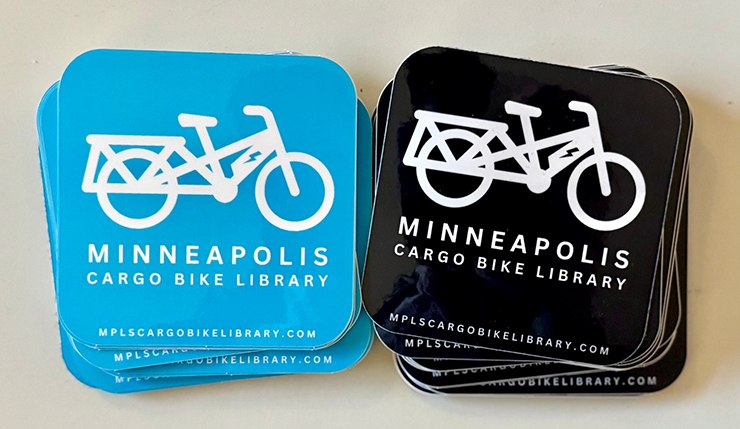I’m an admitted cargo bike convert by way of my almost 4-year-old daughter. As a parent, being able to avoid steering wheels and car seats and, instead, riding together on a bicycle is magic. Enjoying the outside air, looking for dogs and flowers, chatting and making eye contact, or stopping at a moment’s notice have remained a profound liberation from the constrained society of traffic.
But cargo bicycles — larger vehicles designed for carrying more than one person, or a trunk-load of groceries — are not for everyone, not least because of the tremendous investment. The cheapest e-cargo bike you can buy is going to cost at least $1,000, and those at the high end of the market break five-figures. Few people spend that kind of money on a whim.
The other problem is that they’re big, weighing around 70 pounds on average, and too big to throw in your trunk. As such, acquiring a cargo bike seems a bit like ski jumping: there’s a learning curve, and it’s hard to imagine how people can get started with the activity.
Enter the Minneapolis Cargo Bike Library, a new effort by a partnership of Minneapolis’ Lyndale Neighborhood Association and the Bicycle Alliance of Minnesota. They aim to demystify cargo bikes by letting people get to know them a bit before they commit, like speed dating a new technology. In this way, the cargo bike library serves a double purpose, helping get access to the more useful haulers for folks who might need one once in a while, and opening the door to would-be buyers of the most efficient new technology on the market.
“My whole goal is to get cargo bikes out to people to use them,” said Laura Mitchell, who started the library effort in her Minneapolis neighborhood. “They are game changers and incredible car replacers. Especially in a city like Minneapolis, there’s so much bike infrastructure, ready for people to start replacing car trips with bike trips.”
Mitchell’s idea was inspired by efforts in New England, especially a program in Vermont where e-bikes can be rented from public libraries. When she learned about a similar effort in Boston called Community Pedal Power, running a similar cargo bike sharing program out of people’s backyards, she decided to bring the model to her hometown.
“There are a lot of limitations on beginning to use cargo bikes,” Mitchell said. “They are out of the budget for a lot of families, but being able to test out some of the more lower-budget bikes, like the direct-to-consumer bikes — there’s not a way that you can test out bikes in person.”
Right now there are only three cargo bikes in the Cargo Bike Library stable, part of its very-low-overhead grassroots approach. The bikes are stored in a unique bike garage made by the Cyclehoop company and located on land next to the Lyndale Neighborhood offices. After the training, members of the bike library can rent out the bikes for a week at a time, using them enough to really get a sense for their pros, cons and utility.
The way that Mitchell set it up involved close collaboration with the Bicycle Alliance of Minnesota, the state’s oldest and largest bicycling advocacy organization. She was able to use pre-existing grant funding to spearhead the initial tiny bike fleet, as well as leverage the group’s nonprofit status and insurance as an umbrella for the tiny effort. The alliance also played a key in developing the one-hour “orientation” required from each renter, teaching basic skills and knowledge about how to use cargo bikes and navigate sometimes confusing urban spaces.
“We have a required orientation as part of this in order to get access to be able to request a bike to rent,” Mitchell said. “It’s ‘here’s how the bike works’ basic road safety stuff, and here’s the logistics of how the program works.”
The partnership is something that might come in handy if the cargo bike library scales up someday.

“What makes this cargo bike library unique, besides being free, is that [we] will be providing the education and support for neighbors using bikes,” said Angela Olson, from the Bike Alliance. “They can feel confident and prepared when they are out lugging around their kids and groceries. We couldn’t be happier with the neighborhood response and look forward to seeing how this project grows!”
Since the training started, there’s been more demand than Mitchell expected. The most common question she fields is “how do I get this happening in my neighborhood?” It’s too early to answer that question. The end goal is to increase the interest and demand for bicycles, especially the unique cargo bikes that help people with errands and parenting.
There’s a long-running joke among bicycle people about the number of bicycles you need: n +1, of course. For example, I can think of at least three more bikes that I need — a fat-tire bike, a Dutch-style city bike, and a mountain bike — but it turns out my garage is not that big. For most people, the actual acquisition remains a question of priorities, space, logistics and cost.
That’s why the bike library is a great idea for people who don’t yet realize how useful cargo bikes can be. The library will be spreading the gospel of what’s a promising technology, as a low-carbon transportation future depends not on self-driving cars or Tesla trucks, but e-bikes that can do the job of a giant car with a fraction of the lithium-ion infrastructure.
Someday, I hope you can check out one of them. Literally.

Bill Lindeke
Bill Lindeke is a lecturer in Urban Studies at the University of Minnesota’s Department of Geography, Environment and Society. He is the author of multiple books on Twin Cities culture and history, most recently St. Paul: an Urban Biography. Follow Bill on Twitter: @BillLindeke.




